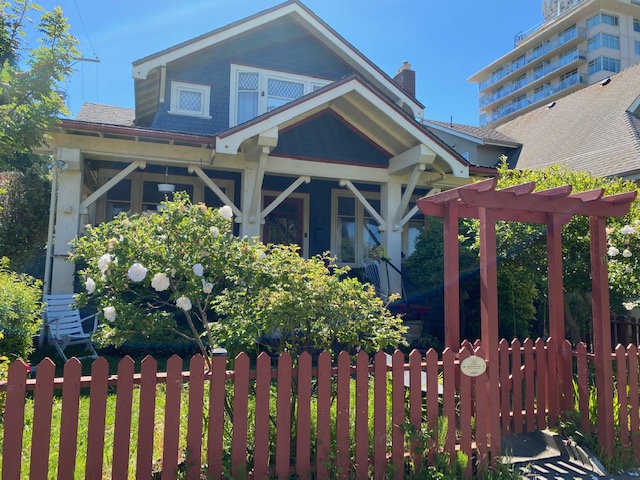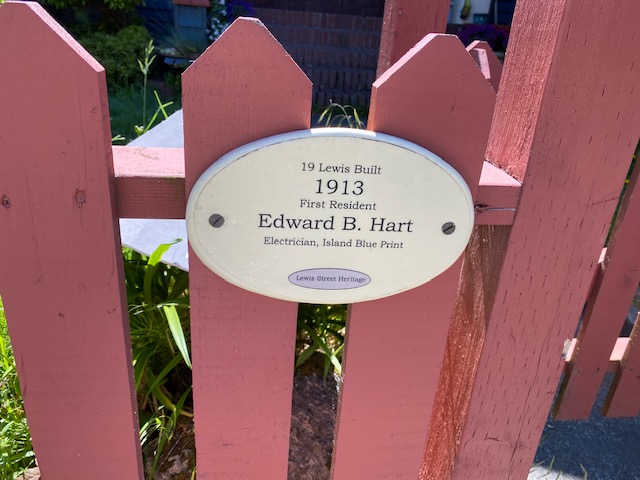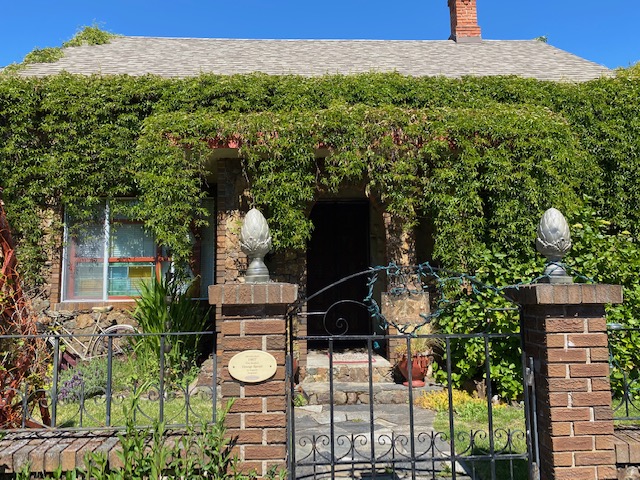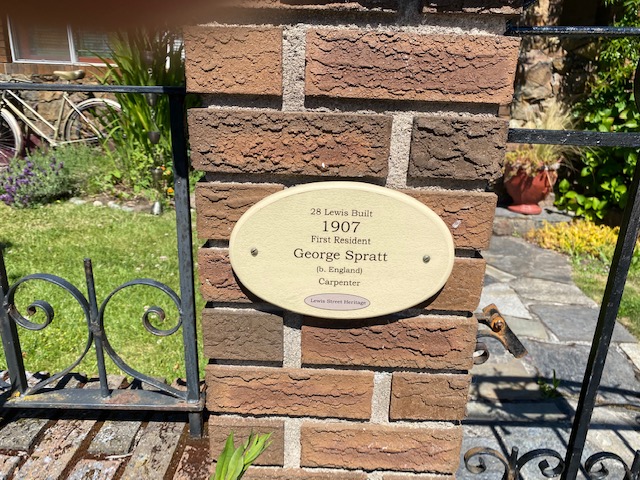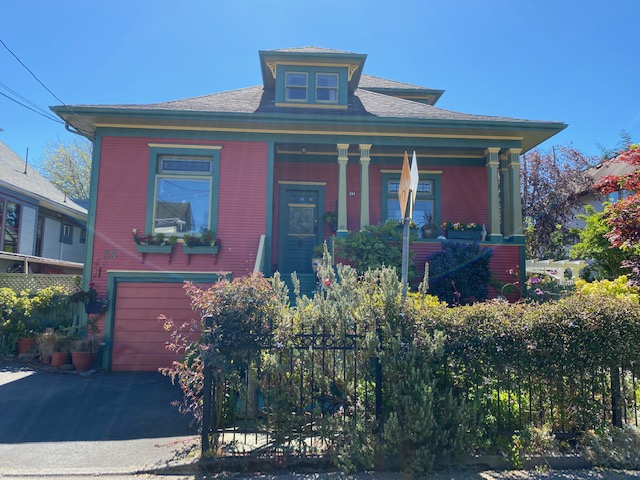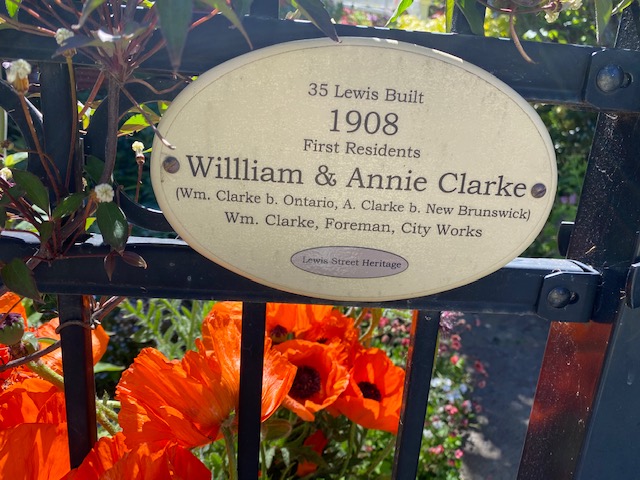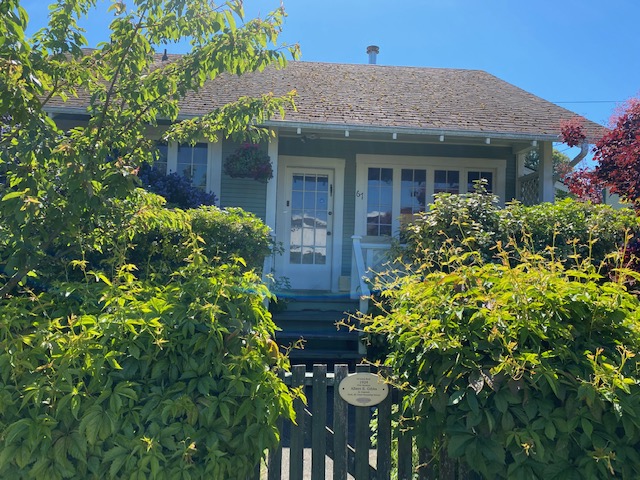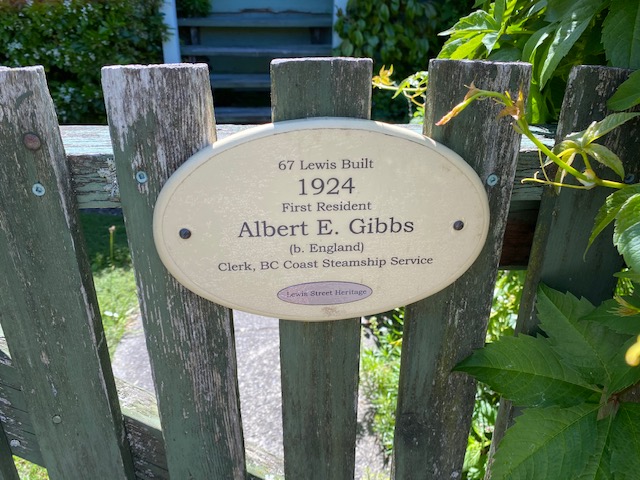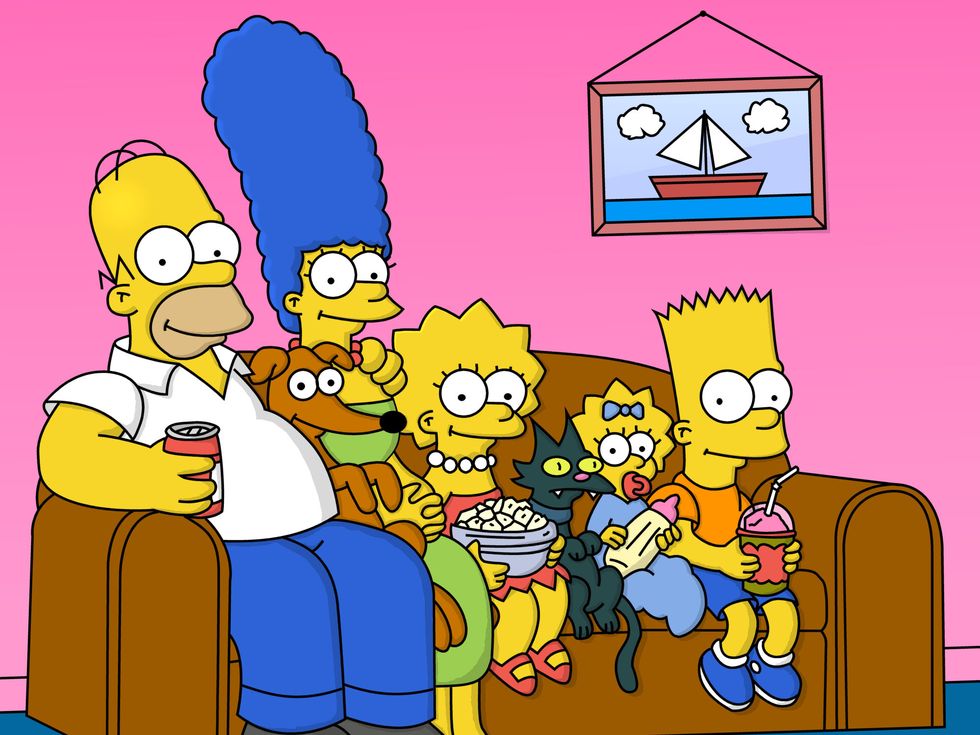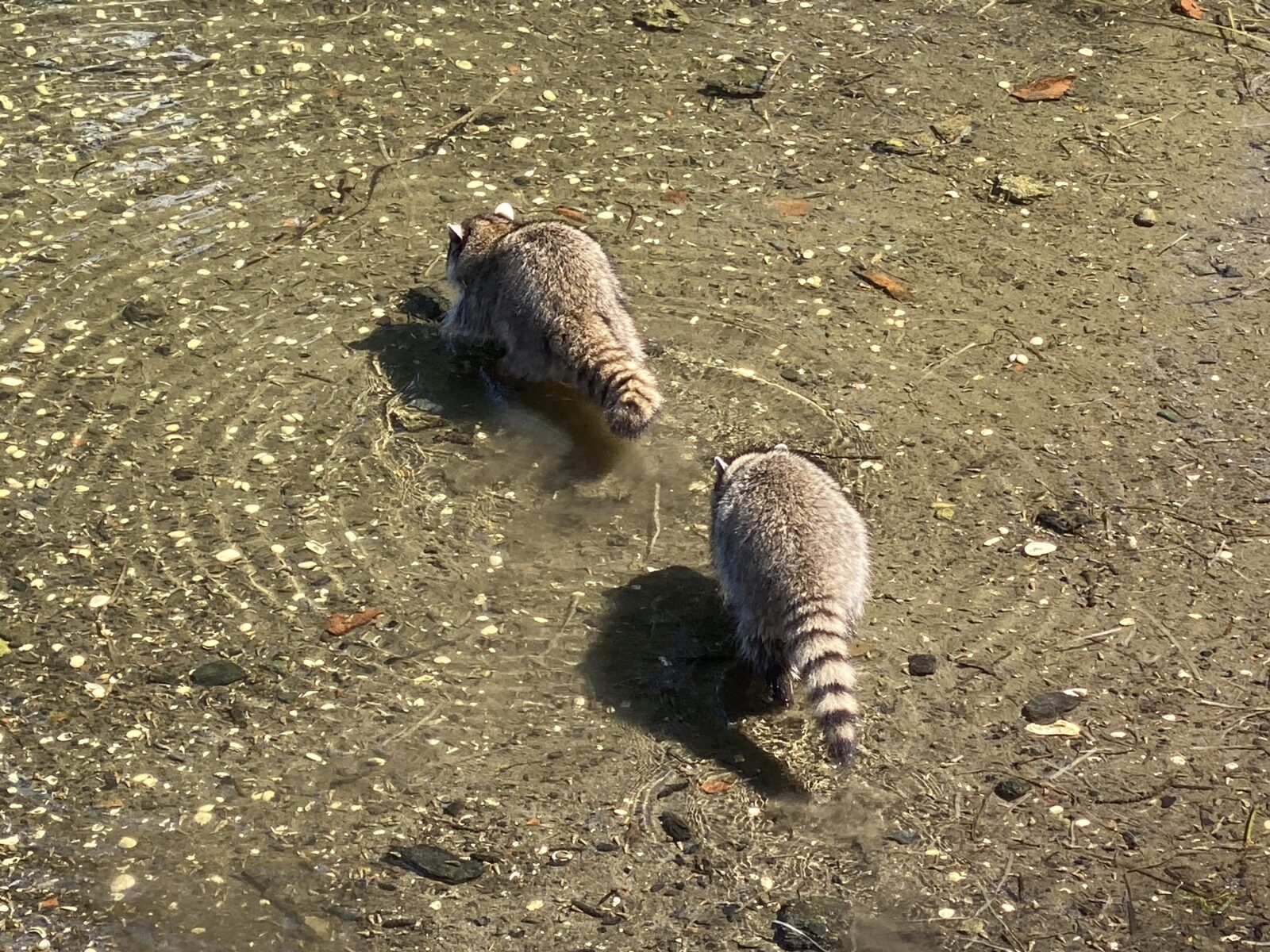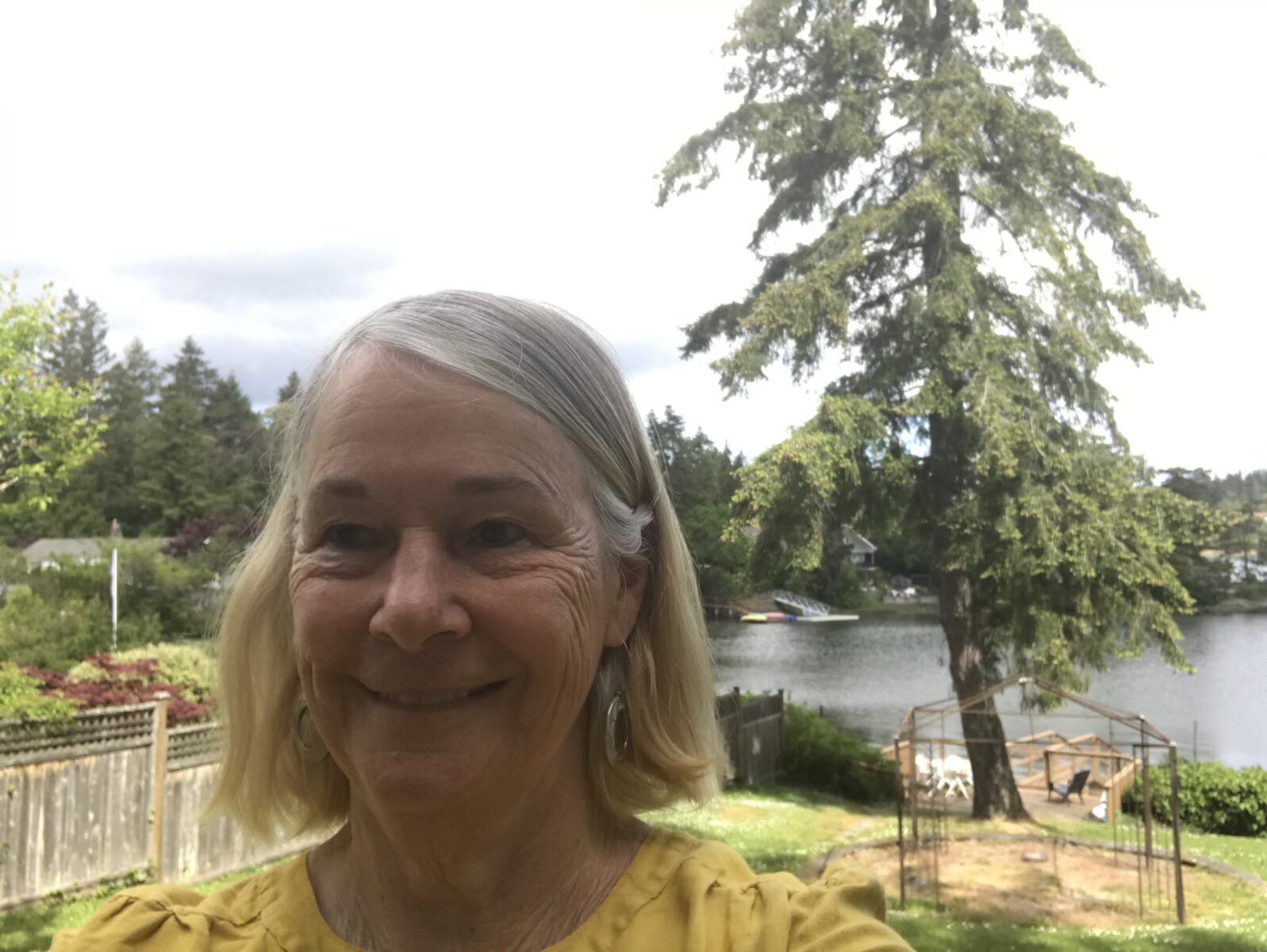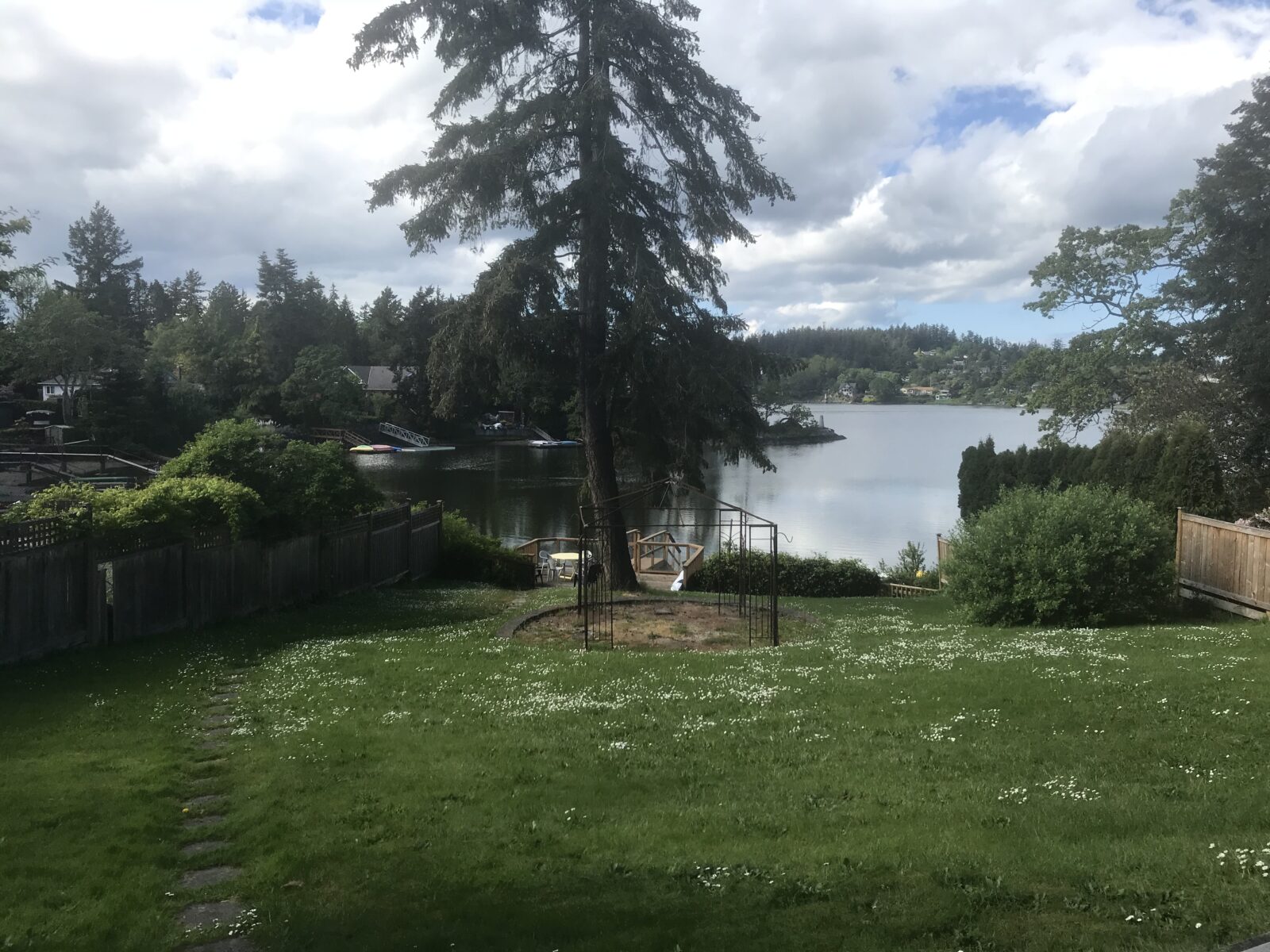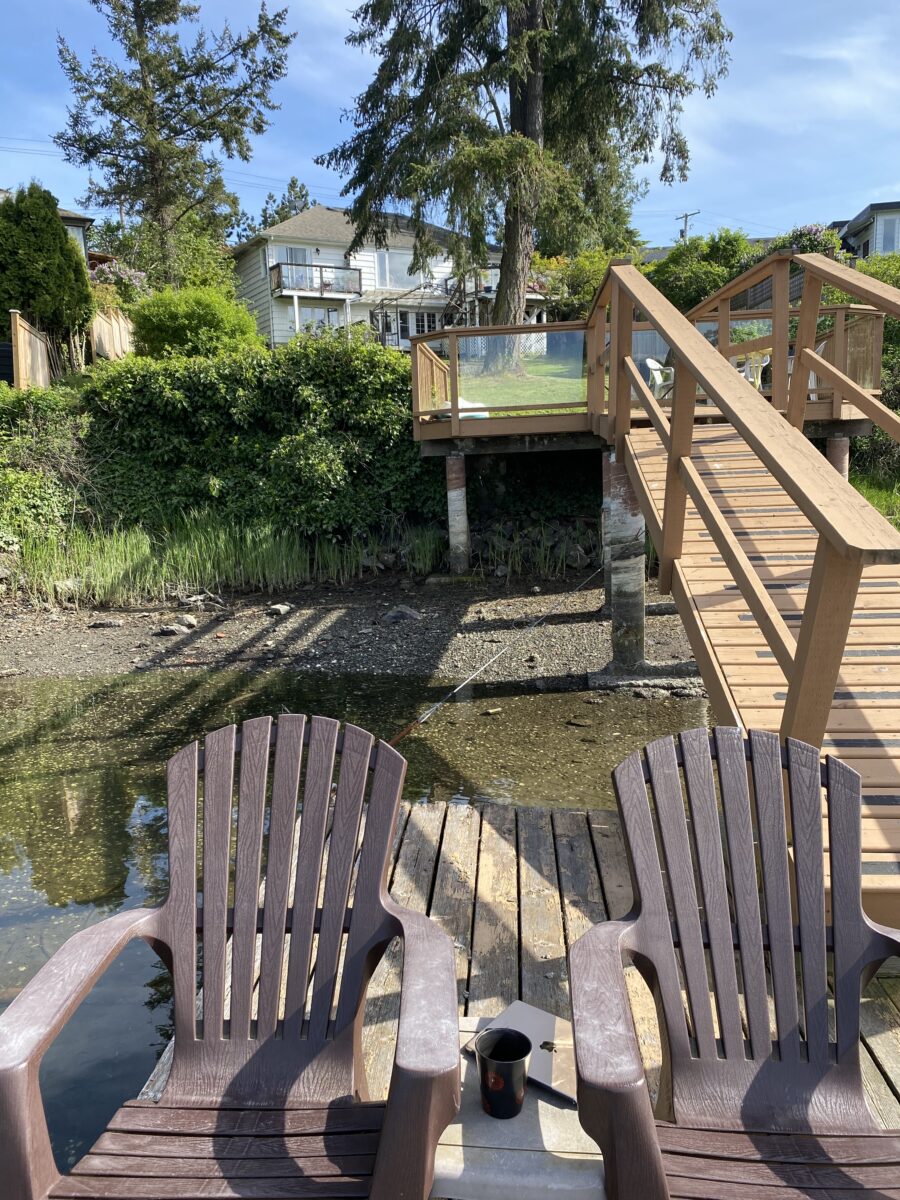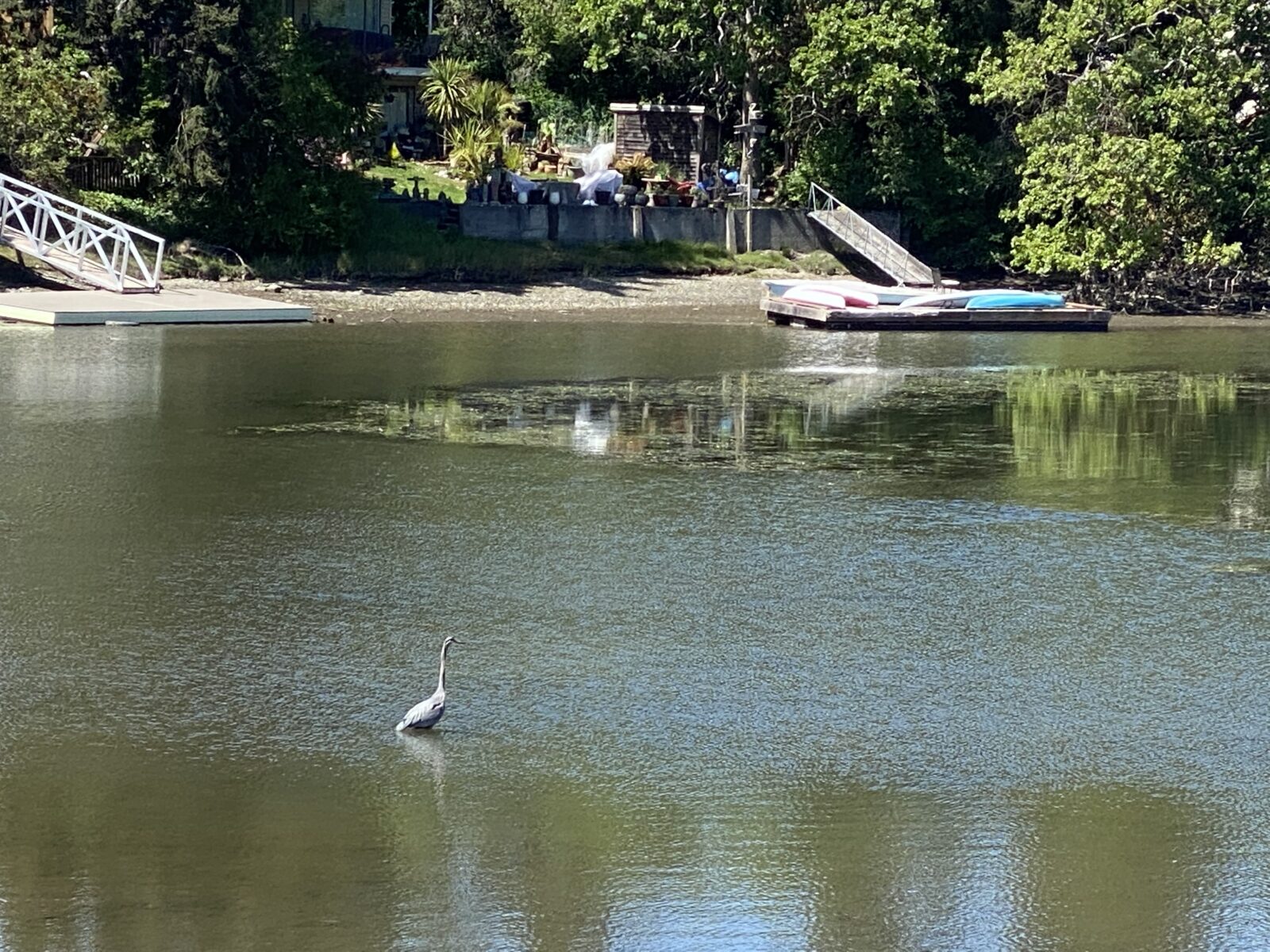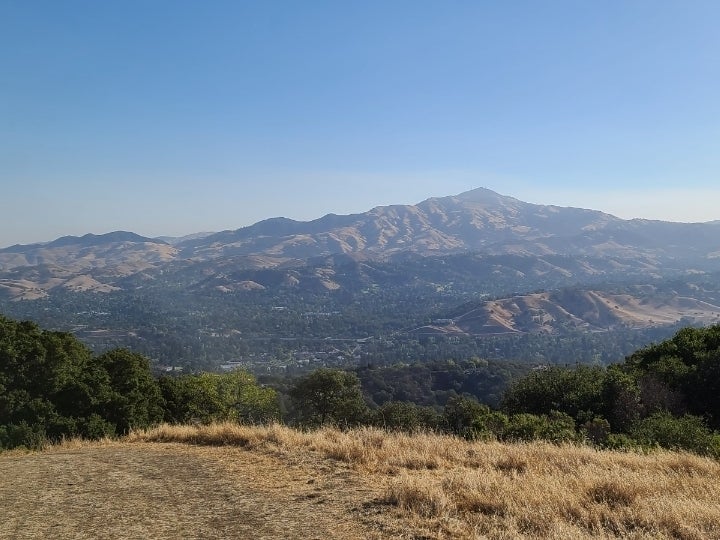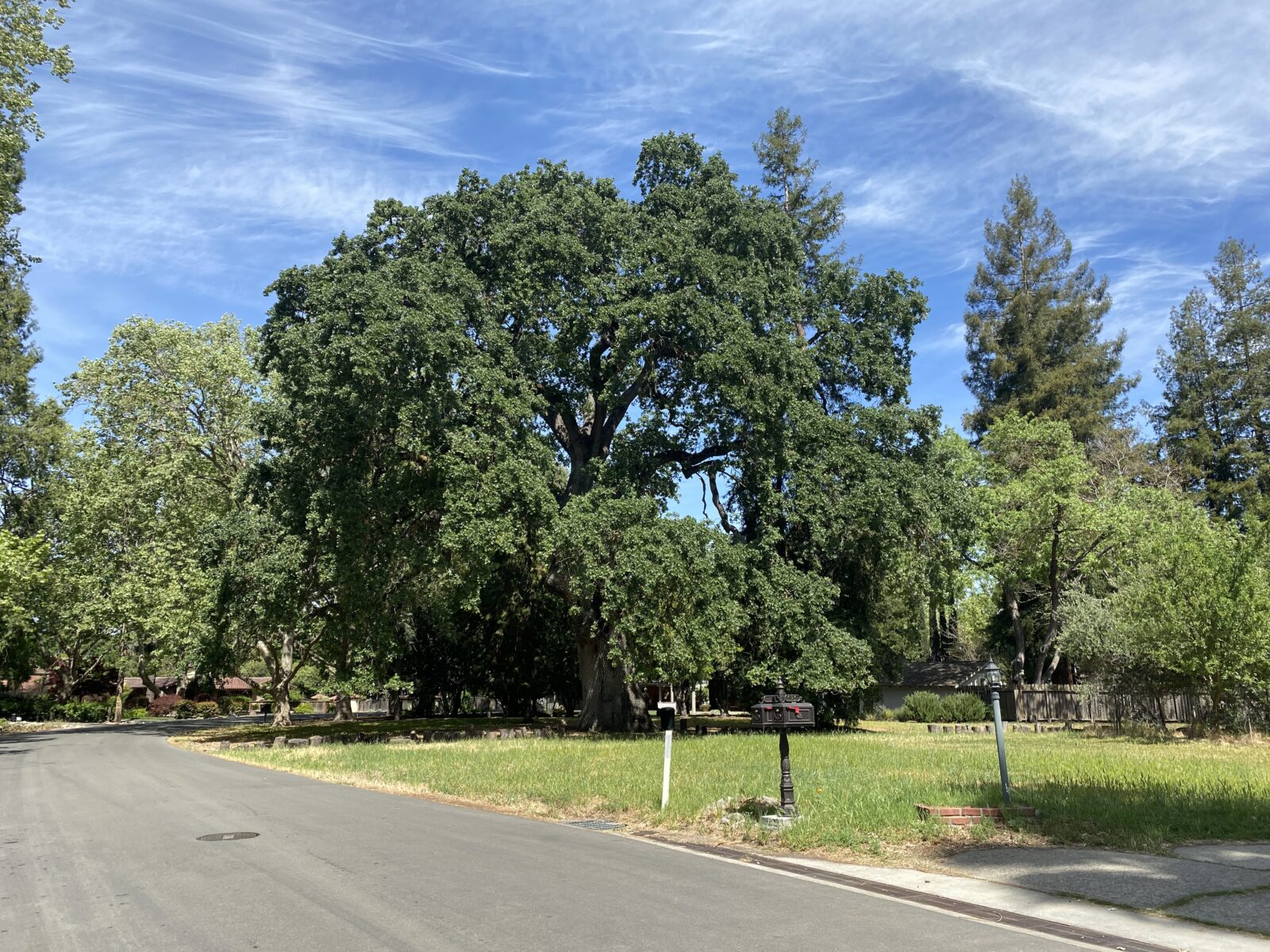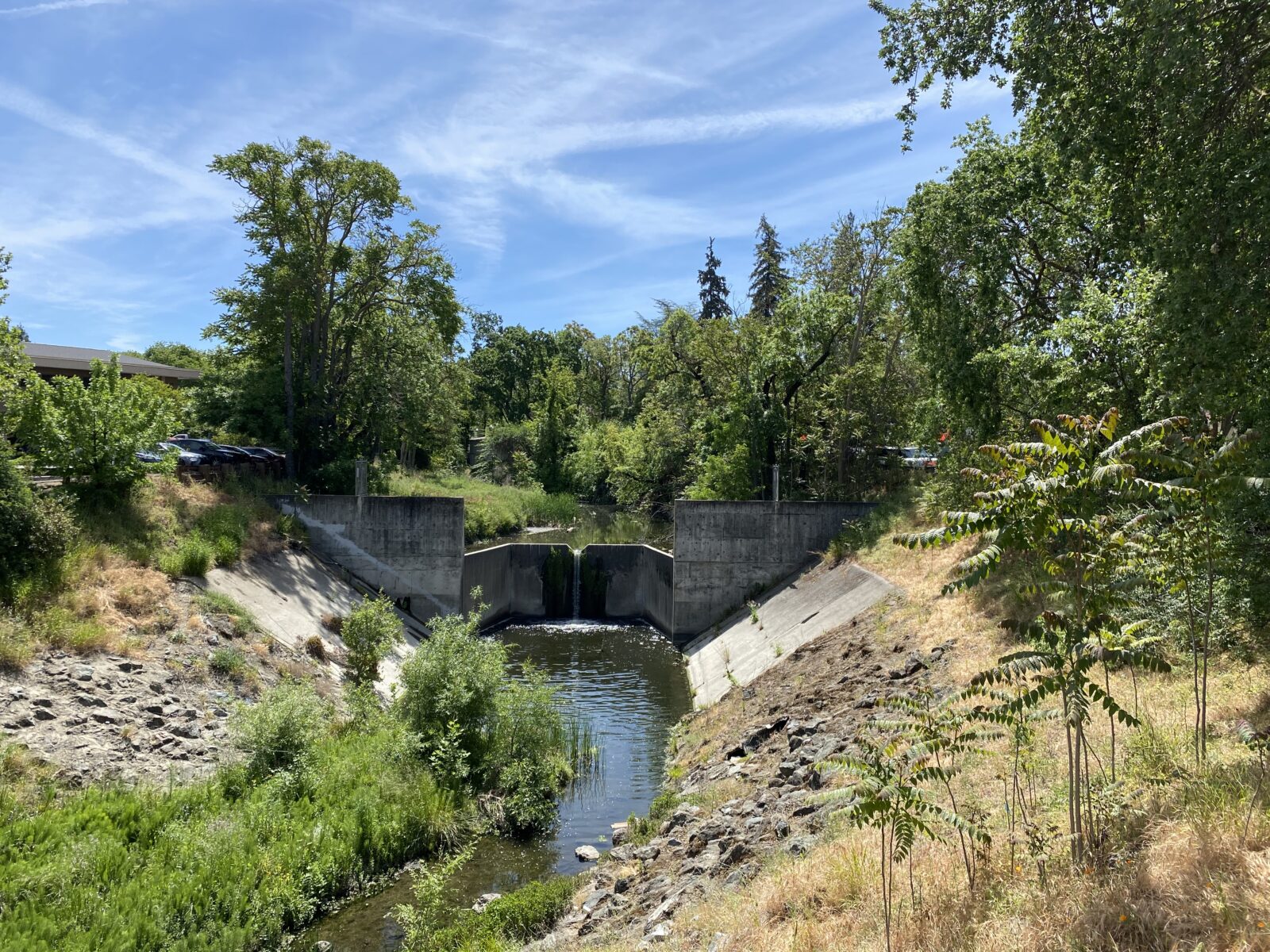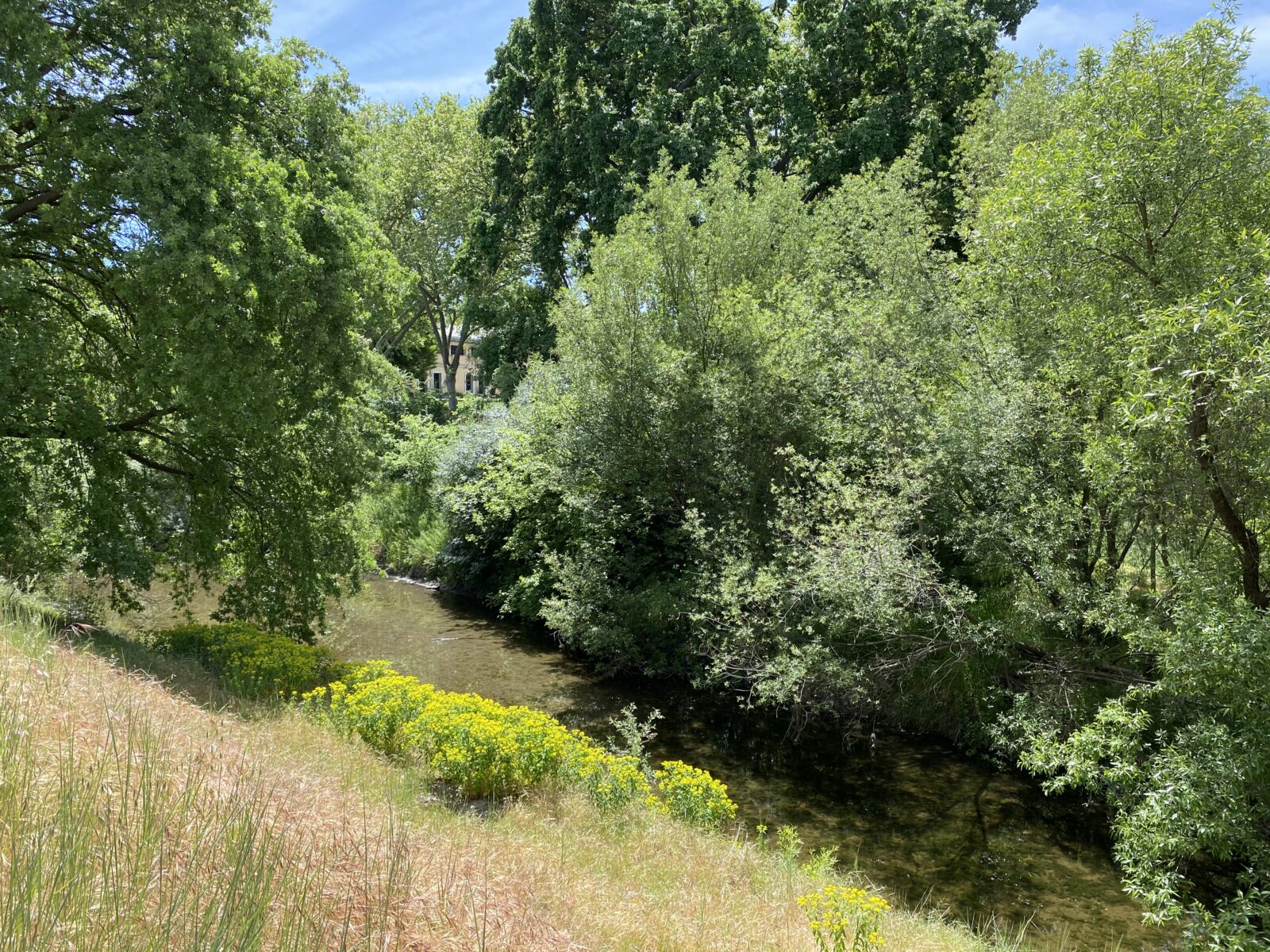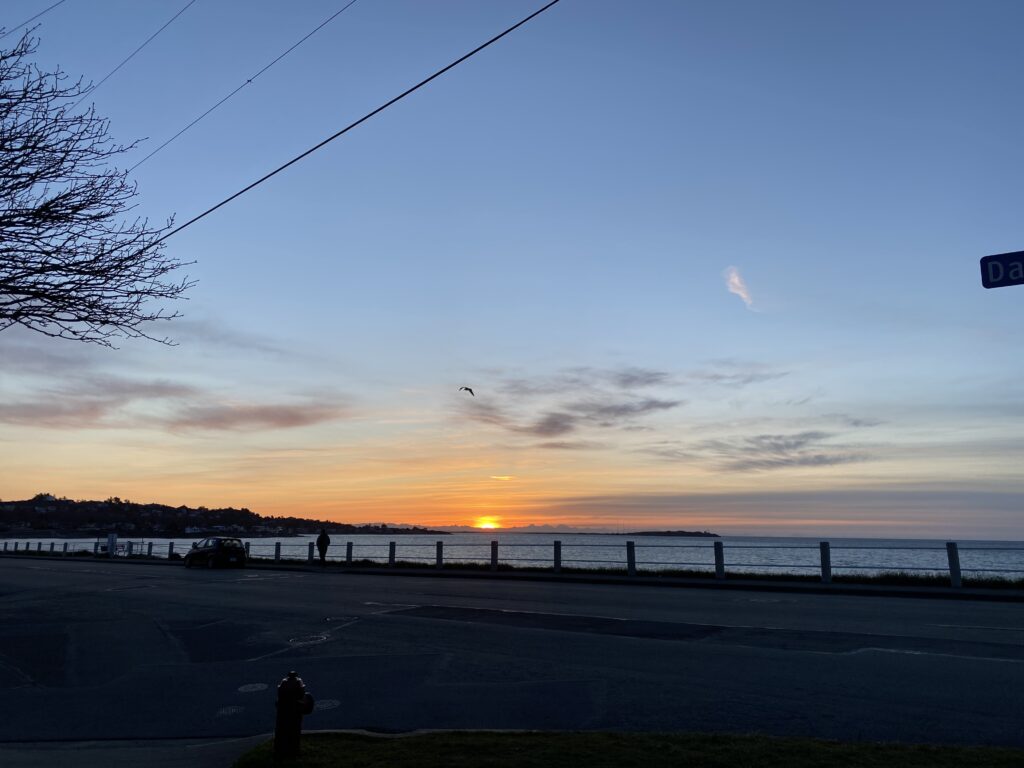When I am visiting an island by car, my attention is always drawn to roads that go all the way to the water’s edge at the island’s extremities. I don’t really much care if there is anything in particular to see when I pull up at that final stop sign. After all, it is the journey I’m focusing on, not the destination.
I had that kind of day, driving from the tiny village of Sturgies Bay at the southern end of Galiano Island to the northern end, where the road ends at the boundary of a marine reserve that can be accessed only by boat. Nice to do sometime, but today, no boat.
On the way up, I stopped at another regional park at Montague Bay (see photos below), and if that was all I did today I would have been pleased indeed. I sauntered along a beach made of crushed shells, some of them left from middens created thousands of years ago by indigenous people. But I had more island to explore, so I pushed on.
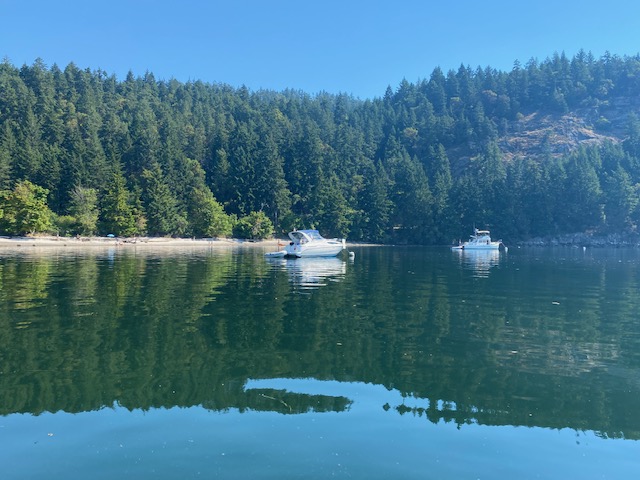
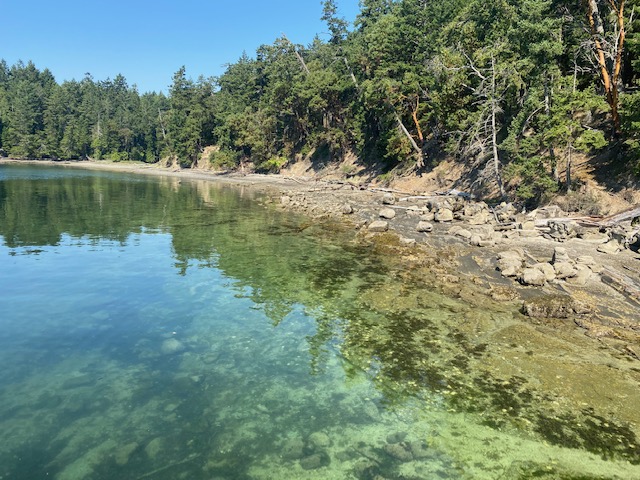
I noticed as I drove the narrow and winding road that i was going way below the speed limit (unusual for me), and I realized that my inner metronome had slowed. Maybe it was the record heat that took something out of me, but the car was air conditioned, so there goes that theory. I think it was that voice that seems to surface when I am surrounded by natural beauty, the voice that says “what matters is this moment. Savor it.”
So I did. When I got to the top of the island, there was a gravel road that let me go a little further, and when I reached the end, I saw a sign for Crystal Mountain Retreat, an east-meets-west center for Buddhist meditation and study, clearly deserted at the moment. The sign said people were welcome to walk the paths, so in I went. After a few minutes, I ran across this tiny clearing with a small statue of the Buddha and a few prayer flags so tattered and faded it took me a moment to see what they were.
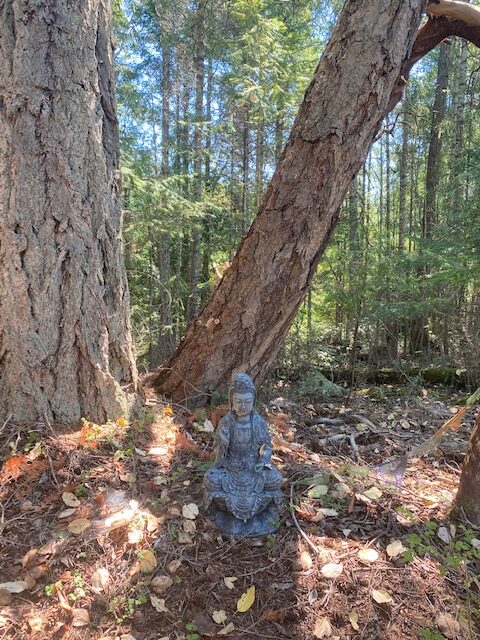
A little further on, this beautiful banner marked the continuation of the trail.
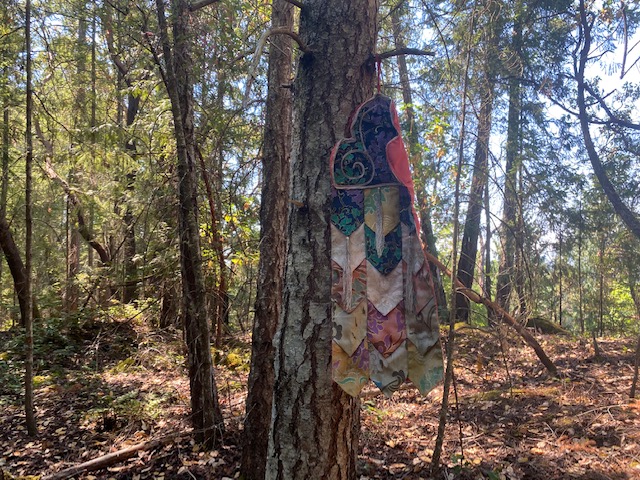
And then, there i was, surrounded by strings of prayer flags along and above the path. A little further on were a few open-air buildings for meetings, but it didn’t look as if anyone had been there in quite a while. I was the only human in the woods.
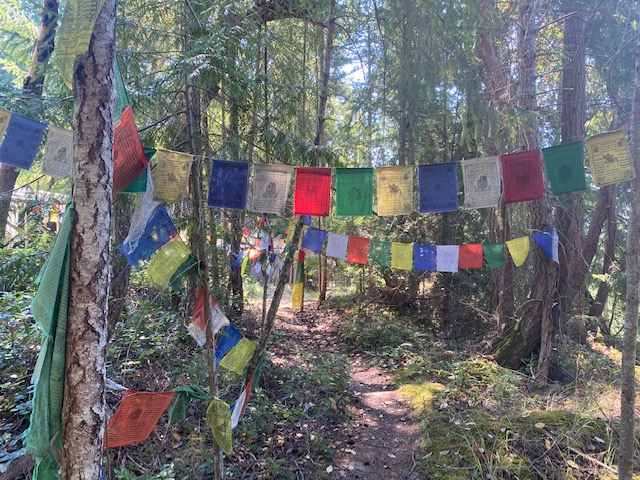
I have always loved the Buddha. I love Buddhist temples. I love Buddhist countries. There is a Buddha presence that permeates these places and I find it instantly calming. I pressed my hands together, repeating the mantra I learned in Bhutan, and everything fell away except the moment. These woods. This day. This me.
I thought about sacredness, and its connection to the human will. This place was sacred in part because the Crystal Mountain founders decided to see it that way, but it was sacred before, and will be sacred when they abandon it, no different from all the land on this island, and everywhere.
But still, there is something about choosing to sanctify a place or a thing, or a time. Religions make a distinction between the sacred and the ordinary, and so many practices follow from this. Sometimes we put on a hat or take one off, sometimes we remove shoes, sometimes we don a robe. Sometimes we light candles, or blow them out. Some of us cross ourselves at the door of a church, or draw a sacred circle around a spot on the ground. It’s all to say, “that is one world; I am crossing into another.” I feel sorry for people who can’t related to sacredness, for without it, a lifetime is just one long stretch of the ordinary.
On my way back I drove right by the two remaining things I wanted to see.( Everything is very poorly marked here. I guess most people already know where things are.) When I realized my mistake, I was almost back at the other end of the island. I was momentarily disappointed, but then I thought that perhaps it was a good thing because the beautiful places I visited can stand by themselves in my memories without competition.
I went off in search of nothing today, and i found something precious. Perspective. And a little missing piece of myself. Both of those are roads without ends.

